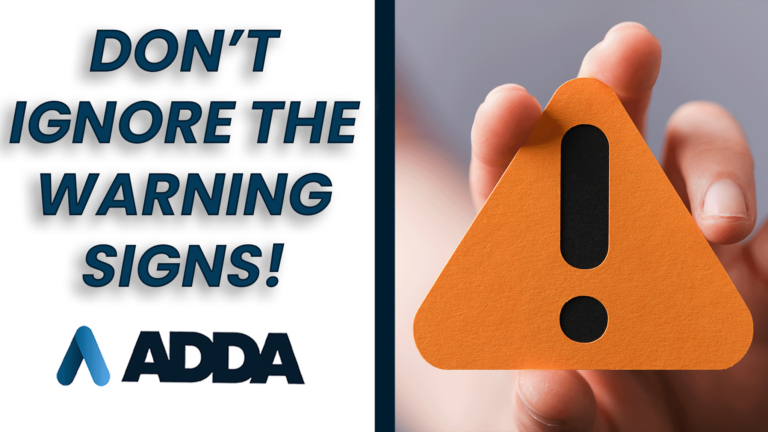HR compliance remains one of the most crucial, yet often overlooked, aspects for small to medium-sized businesses. In Colorado, where state-specific employment laws add an extra layer of complexity, maintaining HR compliance is not just a legal obligation—it’s a business imperative. This is where an HR Compliance Checklist for Colorado Businesses is invaluable.
But are you sure your business is fully compliant?
The stakes are high, and non-compliance could cost you more than just fines. It could jeopardize the very future of your business.
This comprehensive guide will walk you through the essentials of HR compliance for Colorado businesses. We’ll cover the risks of non-compliance, common challenges small businesses face, and provide a detailed HR compliance checklist to ensure your business is protected. Finally, we’ll introduce a free HR compliance quiz designed to help you identify any potential risks specific to your business.

Understanding HR Compliance in Colorado
HR compliance involves adhering to all relevant employment laws and regulations that govern how employees are hired, managed, and compensated. In Colorado, this means navigating both federal laws and state-specific regulations that cover a wide range of issues, from wage and hour laws to anti-discrimination practices.
One of the unique challenges for businesses in Colorado is keeping up with state-specific laws that frequently change.
For instance, the Equal Pay for Equal Work Act, which came into effect in 2021, requires businesses to provide equal pay for equal work regardless of gender. This act also mandates transparency in job postings, requiring employers to list salary ranges for all positions. Failure to comply with these laws can result in significant fines and legal consequences.
The Risks of Not Completing an HR Compliance Checklist for Colorado Businesses
Non-compliance with HR regulations can have devastating effects on your business. The financial repercussions are often the most immediate, with penalties for violations ranging from thousands to millions of dollars, depending on the severity of the infraction. However, the impact goes far beyond financial loss.
1. Legal Consequences: Non-compliance can lead to lawsuits from employees or former employees, resulting in costly legal battles that drain your resources and divert attention from core business activities. In Colorado, lawsuits related to wage and hour violations, discrimination, and wrongful termination are particularly common.
2. Damage to Reputation: A single compliance violation can tarnish your business’s reputation, leading to loss of trust among customers, employees, and the public. In today’s social media-driven world, news of non-compliance can spread quickly, causing long-term damage to your brand.
3. Operational Disruptions: Non-compliance can result in audits and investigations by regulatory bodies, disrupting your business operations. These disruptions can lead to lost productivity, increased stress, and ultimately, a decline in business performance.
4. Employee Morale: When employees perceive that their employer is not compliant with labor laws, it can lead to a toxic work environment. Low morale can result in higher turnover rates, reduced productivity, and increased absenteeism, all of which can have a negative impact on your bottom line.

Common HR Compliance Challenges for Small Businesses
Small businesses in Colorado face unique challenges when it comes to HR compliance. Unlike larger corporations, small businesses often lack dedicated HR teams or the resources to hire legal experts. This can make it difficult to keep up with the ever-changing landscape of employment law.
1. Limited Resources: Many small businesses operate with limited budgets and staff, making it challenging to stay on top of compliance requirements. Without a dedicated HR professional, tasks such as updating employee handbooks, conducting regular audits, and staying informed about legal changes can easily fall through the cracks.
2. Complexity of Laws: The complexity of federal and state employment laws can be overwhelming, especially for small business owners who wear multiple hats. In Colorado, laws such as the Healthy Families and Workplaces Act (HFWA), which mandates paid sick leave for employees, add to the complexity.
3. Keeping Up with Changes: Employment laws are constantly evolving, and small businesses may struggle to keep up with these changes. For example, the passage of the Colorado Equal Pay for Equal Work Act introduced new requirements that many businesses were unprepared for, leading to widespread confusion and non-compliance.
4. Inconsistent Enforcement: Small businesses may inadvertently enforce policies inconsistently, leading to potential claims of discrimination or unfair treatment. This can be particularly problematic in areas such as wage and hour laws, where even minor discrepancies can result in significant penalties.

HR Compliance Checklist for Colorado Businesses
To help ensure your business remains compliant with Colorado’s employment laws, we’ve created a comprehensive HR compliance checklist. Use this checklist as a guide to assess your current practices and identify any areas where you may need to make improvements.
1. Wage and Hour Compliance:**
- Ensure all employees are classified correctly as either exempt or non-exempt under the Fair Labor Standards Act (FLSA) and Colorado Wage Order.
- Verify that all non-exempt employees are paid at least the Colorado minimum wage, which is adjusted annually based on the Consumer Price Index.
- Track and compensate for all hours worked, including overtime pay for non-exempt employees who work more than 40 hours in a workweek or more than 12 hours in a workday.
- Ensure compliance with Colorado’s meal and rest break requirements, which mandate a 30-minute meal break for employees working more than five hours and a 10-minute rest break for every four hours worked.
2. Equal Employment Opportunity (EEO) Compliance:**
- Develop and enforce a comprehensive anti-discrimination policy that complies with federal laws and Colorado’s Anti-Discrimination Act.
- Train managers and employees on anti-discrimination and harassment policies, including sexual harassment prevention training.
- Maintain records of any complaints, investigations, and actions taken in response to allegations of discrimination or harassment.
3. Employee Classification:**
- Review job descriptions and duties to ensure employees are classified correctly as either independent contractors or employees, in compliance with IRS guidelines and Colorado state laws.
- Regularly audit your workforce to identify any misclassification issues and reclassify workers as needed to avoid penalties.
4. Payroll and Tax Compliance:**
- Ensure that all payroll taxes are calculated correctly and submitted on time to both federal and state tax authorities.
- Provide employees with accurate and timely wage statements, including information on hours worked, pay rates, and any deductions.
- Keep accurate records of all payroll transactions, including employee hours, wages, and tax withholdings.
5. Health and Safety Compliance:**
- Develop and implement a comprehensive workplace safety program that complies with the Occupational Safety and Health Administration (OSHA) standards and Colorado state regulations.
- Conduct regular safety training and drills to ensure employees are aware of safety procedures and protocols.
- Maintain records of any workplace injuries, illnesses, or accidents, and report them to OSHA as required by law.
6. Employee Benefits Compliance:**
- Ensure compliance with the Affordable Care Act (ACA) by providing health insurance to all eligible employees and reporting coverage to the IRS.
- Comply with Colorado’s Paid Family and Medical Leave Insurance (FAMLI) program, which requires employers to provide paid leave to employees for certain family and medical reasons.
- Review and update your employee benefits offerings regularly to ensure they comply with federal and state laws.
7. Employee Handbooks and Policies:**
- Develop a comprehensive employee handbook that outlines your company’s policies and procedures, including those related to attendance, leave, and disciplinary actions.
- Review and update your employee handbook regularly to reflect changes in federal and state employment laws.
- Distribute the handbook to all employees and require them to sign an acknowledgment form to confirm they have read and understood the policies.
8. Recordkeeping Compliance:**
- Maintain accurate and up-to-date employee records, including job applications, performance reviews, and disciplinary actions.
- Store records securely and ensure they are easily accessible in case of an audit or investigation.
- Comply with federal and state recordkeeping requirements, including those related to wage and hour, tax, and benefits records.
9. Workplace Posters and Notices:**
- Ensure that all required federal and state labor law posters are displayed prominently in the workplace.
- Keep posters up-to-date to reflect any changes in employment laws, such as minimum wage increases or new anti-discrimination regulations.
- Provide employees with required notices, such as those related to workers’ compensation or unemployment insurance.
10. Training and Development Compliance:**
- Provide ongoing training to employees on workplace policies, safety procedures, and compliance requirements.
- Offer professional development opportunities to help employees stay current on industry best practices and regulatory changes.
- Document all training sessions and maintain records of employee participation and completion.

How to Ensure Your Business is HR Compliant – HR Compliance Checklist for Colorado Businesses
Maintaining HR compliance is an ongoing process that requires diligence, attention to detail, and a commitment to staying informed about changes in employment law. Here are some actionable steps you can take to ensure your business remains compliant:
1. Conduct Regular HR Audits:**
- Perform regular HR audits to identify any compliance gaps and address them before they become serious issues.
- Use the HR compliance checklist provided in this article as a starting point for your audit.
2. Stay Informed About Legal Changes:**
- Subscribe to industry newsletters, attend webinars, and participate in HR conferences to stay up-to-date on changes in federal and state employment laws.
- Consider joining a local HR association, such as the Colorado Society for Human Resource Management (SHRM), to network with other HR professionals and stay informed about legal updates.
3. Invest in HR Technology:**
- Use HR software to automate tasks such as payroll processing, benefits administration, and recordkeeping, reducing the risk of human error.
- Implement an employee self-service portal to streamline communication and ensure employees have access to important information, such as pay stubs and benefits details.
4. Consult with HR Experts:**
- If your business lacks in-house HR expertise, consider consulting with an HR professional or outsourcing your HR functions to a reputable provider.
- An HR consultant can help you navigate complex employment laws, develop compliant policies, and conduct regular audits to ensure ongoing compliance.
5. Train Your Management Team:**
- Provide regular training to your management team on HR compliance topics, such as anti-discrimination laws, wage and hour regulations, and employee classification.
- Encourage managers to communicate openly with HR about any compliance concerns or issues that arise in their departments.
Take Action: Free HR Compliance Quiz
Are you confident that your Colorado business is fully HR compliant? Even with the best intentions, it’s easy to overlook critical compliance issues that could put your business at risk. To help you identify potential areas of non-compliance, we’ve developed a free HR compliance quiz specifically designed for Colorado businesses.
Why Take the Quiz?
- Identify Risks: The quiz will help you pinpoint areas where your business may be non-compliant with Colorado’s employment laws.
- Save Time and Money: By identifying compliance gaps early, you can take corrective action before they lead to costly fines or legal disputes.
- Peace of Mind: Ensure that your business is operating in full compliance with both federal and state laws, protecting your employees and your bottom line.
How the Quiz Works
- The quiz covers key areas of HR compliance, including wage and hour laws, employee classification, and workplace safety.
- It takes just a few minutes to complete, and you’ll receive a detailed report highlighting any potential risks or areas for improvement.
- Based on your results, you’ll also receive personalized recommendations for achieving full compliance.
Take the Quiz Now!
- Don’t leave your business’s future to chance. Take our free HR compliance quiz today and protect your business from costly penalties and legal challenges.

Conclusion
HR compliance is not just a legal requirement—it’s a critical component of your business’s success. In Colorado, where employment laws are complex and constantly evolving, small to medium-sized businesses must be proactive in ensuring they meet all regulatory requirements. By following the HR Compliance Checklist for Colorado Businesses provided in this article and taking our free HR compliance quiz, you can protect your business from the risks of non-compliance and create a safe, fair, and compliant workplace for your employees.
Remember, compliance is an ongoing process. Stay informed, conduct regular audits, and don’t hesitate to seek expert advice when needed. Your business’s future depends on it.









